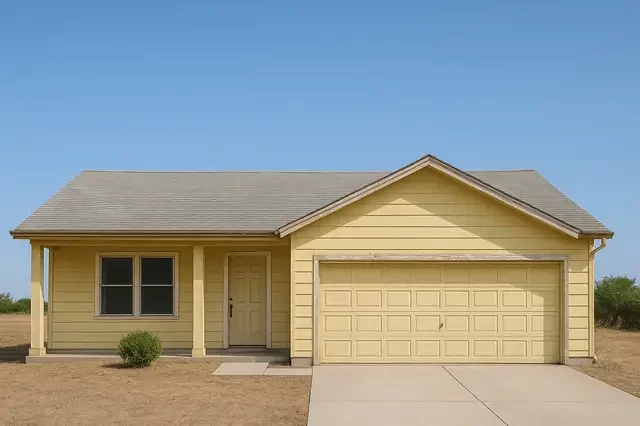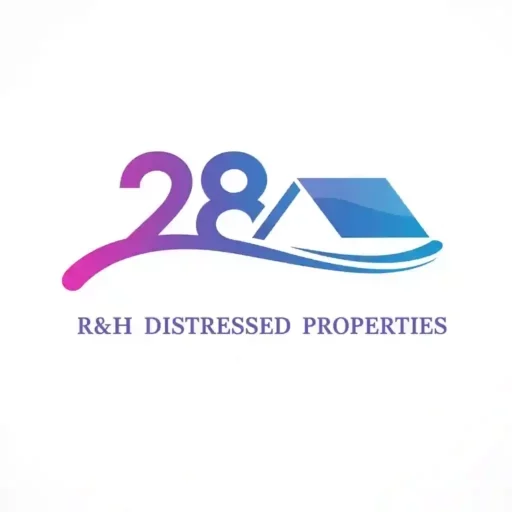Losing a parent is emotionally overwhelming. But when you’re left with their house, the stress often multiplies—especially when you start wondering, “Can I sell my deceased parents house without probate?” The short answer is: maybe. It all depends on ownership, estate planning, and your state’s probate laws. Let’s walk through when you can sell without probate, and what steps you need to follow.
Understanding Probate and Why It Matters
What Is Probate and When Is It Required?
Probate is the legal process that validates a deceased person’s will and oversees the distribution of their assets, including real estate. It involves the probate court, appointed executor, debts, heirs, and legal documents like the death certificate and deed. Whether probate is required depends on how the property was owned and if any estate planning tools were used.
Probate Triggers in Real Estate Ownership
If your deceased parent owned the home solely in their name and without a trust, probate is likely required. State laws determine the threshold for small estates. A property owned in joint tenancy, held in a living trust, or transferred via a TOD deed may bypass probate entirely.
Can I Sell My Deceased Parents House Without Probate?
Short Answer: It Depends on Ownership and Documentation
You may be able to sell without probate if:
- Your deceased parent held the home in joint tenancy with you or a surviving spouse
- The home was placed in a living trust
- There’s a transfer-on-death (TOD) deed
- The estate qualifies for a small estate affidavit under state law
Situations Where Probate May Not Be Required
Some states allow heirs to use a small estate affidavit for estates below a certain value. Also, if your deceased parents placed the house in a living trust, the trustee can sell the house without court involvement. Check your state’s legal requirements for ownership and title transfer.
Ownership Structures That Allow Probate-Free Sale
Property Held in a Living Trust
A living trust names a trustee and beneficiaries. If the house was owned by the trust, the trustee can transfer or sell the property directly. No probate court needed. However, the trustee must provide a death certificate and trust documents to title companies and buyers.
Joint Tenancy With Right of Survivorship
If the property was jointly owned with a right of survivorship, the surviving joint tenant automatically owns the home. Selling this home does not require probate, though you’ll still need to record a new deed.
Transfer-on-Death Deeds (TODs)
These deeds let owners name a beneficiary to inherit the house after death—no probate required. TOD deeds must be filed while the owner is alive. After death, the beneficiary files a death certificate and an affidavit to claim ownership.
Key Documents You Need to Sell a Deceased Parents House
Legal and Financial Paperwork
Whether you need probate or not, expect to gather:
- Death certificate
- Property deed
- Affidavit of heirship or small estate affidavit
- Living trust paperwork (if applicable)
- Letters testamentary (if in probate)
Estate Tax and Title Considerations
Before a sale, confirm there are no title issues. Run a title search to check for liens or unpaid debts. If the home is part of the estate, estate taxes or capital gains tax may apply. An estate attorney can help with these requirements.
Steps to Selling the House Without Probate
Step-by-Step Guide
- Determine how the property is titled
- Get a death certificate and check for TOD deed, trust, or joint tenancy
- Consult a real estate attorney or estate attorney
- Clear any outstanding debts or liens
- Get a valuation of the home’s fair market value
- Hire a real estate agent or contact a cash buyer
- Prepare disclosures and necessary documents
- Close the sale and distribute proceeds
Role of an Estate Attorney or Probate Lawyer
Even if probate isn’t required, it’s wise to consult an estate attorney. They can verify ownership, prepare affidavits, and handle title transfers. If you skip legal help, you risk invalidating the sale.
Special Cases That May Require Probate
If There Is No Will and No Trust
If your deceased parent died intestate (no will), the house becomes subject to intestate succession laws. Probate is typically required unless the estate qualifies for a small estate exemption. The court will appoint an executor to manage the process.
Outstanding Debts or Medicaid Liens
If your parent received Medicaid, the state may try to recover costs from the estate through the home. These debts must be resolved before the property is sold. Nursing home care and other final expenses can also place claims on the estate.
Inheritance, Taxes, and the Financial Impact of the Sale
Tax Implications of Inherited Property Sales
Heirs usually receive a step-up in basis, meaning the home’s tax value is updated to its fair market value at the date of death. This reduces capital gains tax when you sell. Consult an estate attorney or CPA to review tax implications.
Medicaid Recovery and Nursing Home Debt
Some states have aggressive estate recovery programs. If your parent received government aid, these claims can delay or prevent sale. Talk with a probate attorney or elder law attorney to confirm what applies to your state.
Working With Real Estate Professionals
Real Estate Agents vs. Cash Home Buyers
Real estate agents can help you list and market the property for maximum value. Cash buyers offer a fast solution, especially when probate is uncertain. Some buyers specialize in inherited property and can close quickly.
How to Choose the Right Real Estate Agent
Look for agents experienced in inherited homes, probate court cases, and legal procedures. They should know how to navigate title issues, family dynamics, and the affidavit process.
FAQs About Selling a Deceased Parents House Without Probate
Can I sell my deceased parents house without probate if I’m the only heir?
Possibly. If the property qualifies for small estate affidavit or was held in joint tenancy, you may be able to avoid probate.
Does a house in a trust need to go through probate?
No. If the trust is valid and the house was funded into the trust, the trustee can manage the sale without probate.
What is a small estate affidavit and how does it work?
This document allows heirs to bypass probate for estates under a certain value, set by state law. It must be notarized and submitted with other documents.
Do all heirs have to agree to sell the house?
Yes. If multiple heirs have legal interest, all must agree. If there’s disagreement, probate court may need to intervene.
Can an executor sell property without probate?
Not legally. An executor gets authority through probate court. Until then, they can’t transfer or sell property.
Is court approval required to transfer ownership?
Only if probate is required. Trusts, TOD deeds, and joint tenancy may bypass this.
What Happens if You Sell Without Proper Legal Steps?
Potential Consequences and Risks
- Title issues that prevent legal sale
- Buyer pulls out at closing
- Lawsuits from heirs or creditors
- Property remains in deceased parent’s name
Selling a home without resolving probate issues can result in a failed transaction and future legal headaches. Always verify ownership and legal requirements.
Planning Ahead: How Estate Planning Prevents Probate Problems
Estate Planning Tools That Bypass Probate
- Living trusts
- Joint tenancy with right of survivorship
- Transfer-on-death deeds
- Payable-on-death accounts and joint bank accounts
Talk to Your Parents While You Still Can
Conversations about estate planning are tough, but they save your family time, money, and emotional stress. Ask about wills, deeds, and beneficiary designations.
Conclusion: Can I Sell My Deceased Parents House Without Probate?
Yes, in some cases. If the house is in a living trust, owned jointly, or eligible under a small estate affidavit, probate may not be necessary. But always confirm title, legal ownership, and your state’s requirements. A real estate attorney can save you from mistakes.
If you need help selling your deceased parents’ house without probate, consider your options carefully. You may save months of legal hassle.
Get Help With Your Inherited Property Sale
We Buy Houses Inherited From Deceased Parents — No Probate Needed in Some Cases
If you’re wondering, “Can I sell my deceased parents house without probate?” — we’re here to help. At R&H Distressed Properties, we work directly with heirs, attorneys, and title companies to make the process smooth and fast.
We offer:
- Fair cash offers
- No repairs or cleaning required
- Fast closings on your timeline
- Local, experienced professionals who understand probate
Fill out the short form below to get started.

